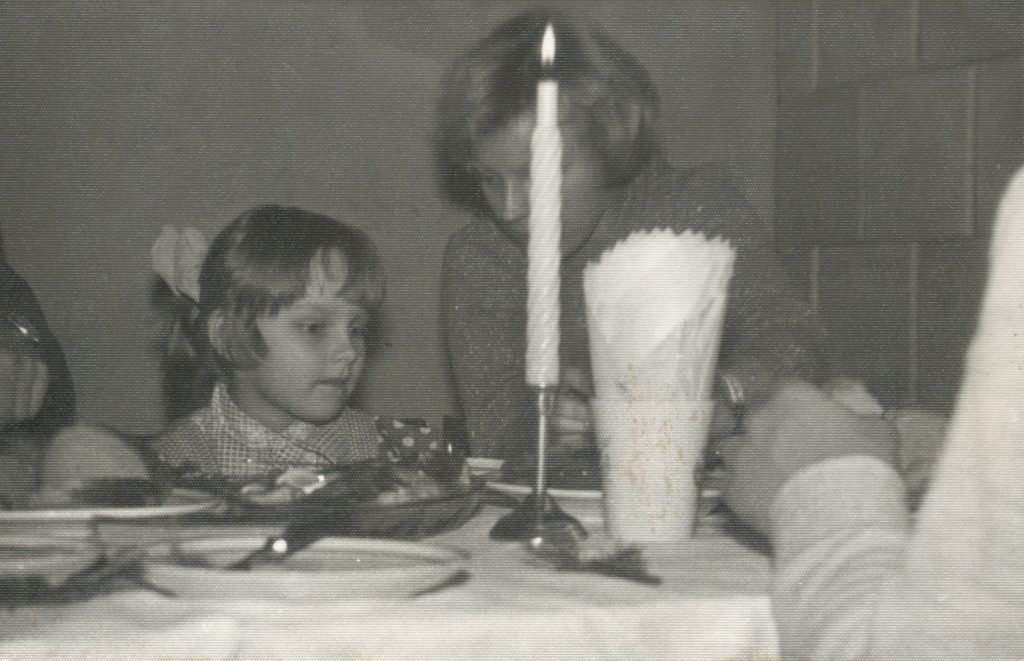
Household Sacramentals, or the Traditions that make Our Home a Domestic Church
Memories, the experiences of yesteryears, especially childhood ones of sounds, smells, and customs form a background to our experiences today. Sometimes recalling a simple warmth of a tradition opens a world of deeper meaning, an “a-ha!” moment, which offers a glimpse at the wisdom, the why’s, behind the actions we often take for granted. I want to share my Advent “a-ha!” moment with you and hope that it will inspire you to look at your family traditions and find a deeper truth and grace there.
I grew up in Poland where the roots of our Catholic faith were deeply sunk into our daily lives. The Church’s liturgical calendar was the rhythm of how we lived. Whether we washed windows and curtains, or reorganized our closets and cleaned our carpets, or made herring and gingerbread, or planted tomatoes, it was all done according to the liturgical season! During Advent, there was always a major house cleaning. All closets and drawers got reorganized, shelves lined with fresh paper, all shoes pulled from the shoe closet to be polished, every inch (centimeter! ☺) of the house would be attended to and de-cluttered during the four weeks leading up to Christmas. I remember how the clean smell of floor wax mingled with the rich aroma of gingerbread, which was baked early so it had time to rest and soften in tins put high in cabinets, away from our little, hungry fingers. Advent was also marked with muted sounds. If the radio was playing, it would be classical music and at half volume. Television was off limits and somehow even our voices became muted, perhaps because they were not competing with other sounds.
The quiet felt very anticipatory, the silence temporary, a pianissimo crescendo to something grand and wonderful. The morning of Christmas Eve, I would wake to new, wonderful smells which would bring my expectations to a fever pitch but also communicate “wait!” because we would fast until dinner time, in union with Our Lady who didn’t eat while she was giving birth. We would set the table with white linens and put a little bit of straw under one corner of the tablecloth, a reminder of the straw in the manger. There would be an extra setting put out, so our Lord would know He is welcomed among us, and if a stranger knocked on the door that night, they would also be welcomed, sit and eat there. When the first star would come out in the evening sky, Advent would be over.
“The great majority of people will go on observing forms that cannot be explained; they will keep Christmas Day with Christmas gifts and Christmas benedictions; they will continue to do it; and someday suddenly wake up and discover why.”
– G.K. Chesterton
This rhythm of my childhood Advent seasons is something I brought to my married life. My husband and children embraced the traditions, although there was much less “noise” in Poland to drown out and let go of, so entering into the quiet of Advent is a much bigger challenge now. Recently, I was ruminating on how Advent seems to be slipping through my fingers and noticed how the peaceful traditions were becoming a yet another “to do” on my list. Is it possible that my reality is just more complicated than my parents’ or grandparents’? Maybe it’s time to let go of what is not necessary and cumbersome?
This thought was like a little thorn, a splinter stuck in the back of my brain. I could not help but keep poking at it, making it fester with dissatisfaction, until some reading I was doing directed my thoughts to how spiritual reality often finds its expression in a physical reality. Thought of in this way, the Advent cleaning out, emptying, and quieting are the physical, temporal aspects that speak of the spiritual reality that needs to be born in our hearts. That was my “a-ha!” moment.
I found so many false desires in my heart, ones that drove me to self-sufficiency and an attitude of “I can do it on my own”. If I can do it on my own, what need do I have for a God Incarnate? Amazingly, it seems that the simple actions of a traditional Advent clean-up point to how I need to be – a creature who receives, who should always be aware that all is a gift from our good and gracious Lord. In a way, I saw that my old Polish traditions were kind of “Household Sacramentals” because they were a “visible sign of an invisible reality”. The humble traditions (does it get any more humble than cleaning?) serve to both give truth to and help my heart get ready for the coming of our Lord. Truly, I’m “faking it before making it” but I found our Lord needs even a little opening. The Creator, the little Babe who is also the Redeemer comes as a gift and I found that Advent cleaning was my way to prepare our Domestic Church so when He comes, He finds “room at the Inn”.
What are your “Household Sacramentals”? What is the spiritual reality they speak of and what do they say about your Domestic Church?

